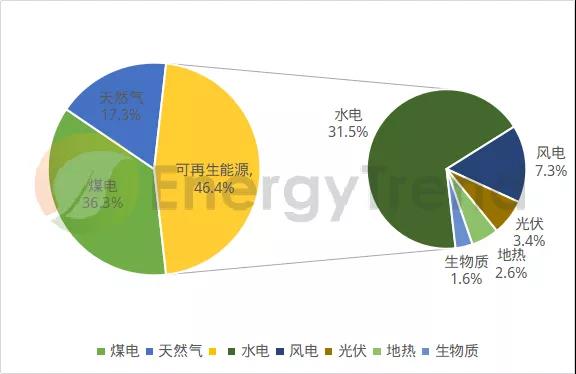|
Recently, the Turkish government revealed that it plans to launch a public-scale photovoltaic project bidding for the Renewable Energy Regional Plan (YEKA) on December 19, and the official bidding will be held on April 20, 2020.
Officials from the Turkish Ministry of Energy and Natural Resources revealed that 100 PV projects will be allocated in 39 different provinces, each with an installed capacity of 10MW.
At the same time, China Electronics Technology Group Corporation (CETC) and Turkish company Kalyon Enerji plan to build a 500MW PV module plant near Ankara, which is expected to begin operation in April 2020. The Turkish government announced that it will provide 1.99 billion Turkish liras (about 333 million US dollars) for the project and exempt it from customs duties and value-added tax.
Photovoltaic development jumps forward
In recent years, Turkey's energy demand has grown rapidly, and the proportion of imported fossil fuels in total primary energy consumption is 75%. Since 2014, the Turkish government has vigorously promoted the development of renewable energy. By the end of 2018, Turkey's total installed capacity of electricity reached 88.55GW, and the cumulative installed capacity of photovoltaics was 5.0629GW. Compared with 3.4207GW in 2017, the installed capacity of photovoltaics increased by 48%.

Distribution of new installed capacity of electricity in Turkey from January to October 2019
Source: Ministry of Energy and Resources of Turkey
According to the plan of the Turkish Photovoltaic Association, the cumulative domestic PV capacity will reach 14GW by 2023, and the cumulative PV photovoltaic capacity will reach 38GW by 2030. In addition, by 2019 Turkey registered more than 5 GW (AC) of unauthorized PV projects.
In May 2019, the United States removed Turkey from the list of developing countries exempt from tariffs on photovoltaic cells and components. The competitiveness of the local shipment of photovoltaic products to the United States suddenly declined, and it also spurred local efforts to Europe. Indian export willingness.
Despite the many challenges, Turkey still has a mature PV supply chain. In addition to component manufacturers, Turkey also has local inverters, monitoring, EPC, operation and maintenance service providers and battery integrators. Most of them are part of a large Turkish business group.
According to the latest forecast of the International Energy Agency (IEA), Turkey's renewable energy will increase from 42GW to 63GW in 2019-2024, an increase of 50%, ranking 11th in the world, ranking fifth in Europe, of which 75% of renewable energy installed from photovoltaics With wind energy, its wind power installed capacity will increase from 5.9 GW at the end of 2018 to 12.9 GW in 2024, and PV will increase from 5.1 GW to 15.2 GW in 2024.
|